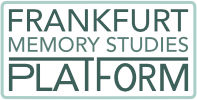Gitanjali Pyndiah (Cultural Studies, Goldsmiths, London)
Indian Ocean Memories Workshop:
“Collective Amnesia, Denial or Disavowal of History? The Indian Ocean Islands of Mauritius and its Colonial Past”
With comments by Astrid Erll, Sissy Helff, and John Njenga Karugia (AFRASO, Frankfurt)
Tuesday 19 May | 12-2 pm | Frankfurt, Goethe University, IG 1.414
Click here to see a video recording of the event (flash player required).
Abstract of Gitanjali Pyndiah’s paper:
While an all-embracing concept of the cartography of the Indian Ocean region would comprise of 52 countries, the Indian Ocean Commission for instance is composed of only five island-states. Uninhabited and insular islands of the Indian Ocean have specific histories of Dutch, French and British colonisation, ‘illegal’ US occupation and militarisation, exploitation of African and Asian populations, migration, cultural and religious forced encounters, spaces of quarantine, spaces of refuge, all under the sunny headlines of island paradises. Narratives of this collective history is however approached differently across nations and remembering the specificities of the Indian Ocean is as necessary as imagining the region as a whole. This paper focuses on how this colonial history is remembered on the Islands of Mauritius. One of the conclusions reached by the Truth and Justice Commission (TJC) in 2011 is that Mauritians in general know very little about their histories. The TJC, whose mandate was to assess the consequences of slavery and indenture during the colonial period up to the present, attributes this situation to the ‘difficult lives’ led by the people, explaining that victims who have suffered the violence of exploitative systems often deny the past or favour ‘amnesia rather than remembering’.
My research argues 1. that the dissemination of national history based on encouraging a collective amnesia was a political move after Independence to avoid transfering the trauma to the next generation and instigate the potential of hope 2. that a colonial memorial framework prevailed and provoked the romanticising as well as the disavowal of a colonial past onthe main island and 3. that a memoriography in language, music, theatre, literature and the arts has acted as a decolonising momentum producing affective histories.


